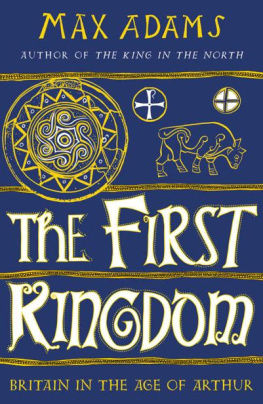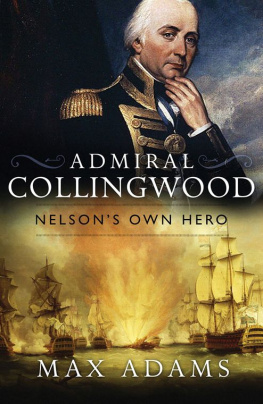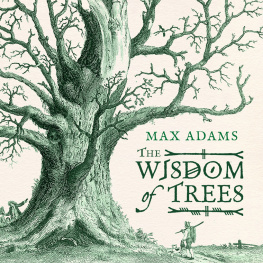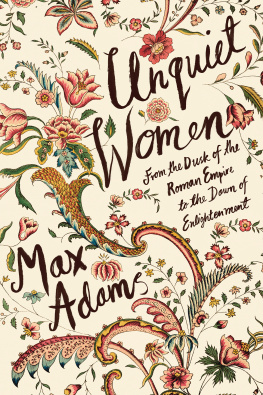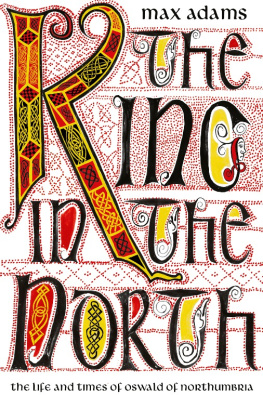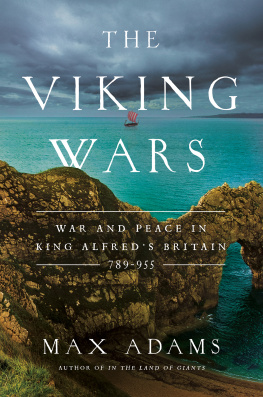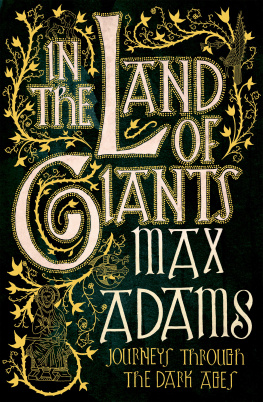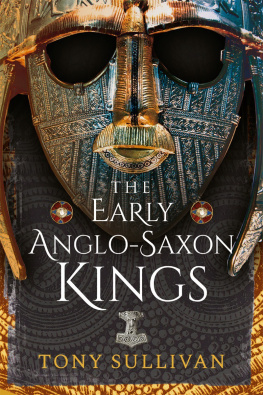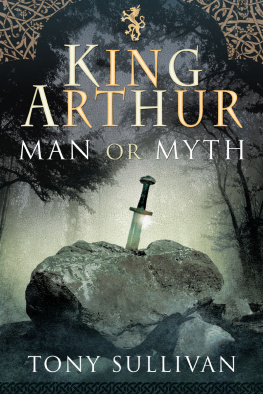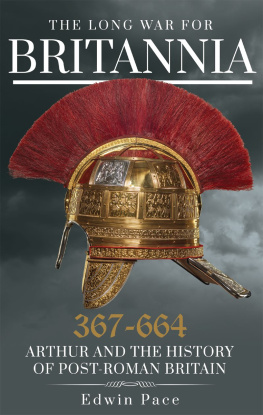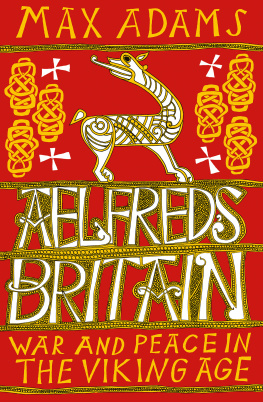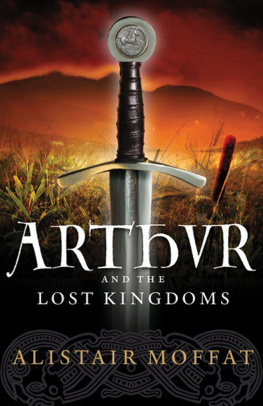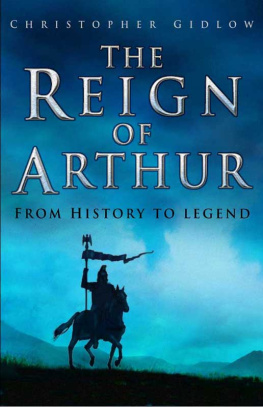THE FIRST
KINGDOM
MAX ADAMS
THE FIRST
KINGDOM

AN APOLLO BOOK
www.headofzeus.com
An Apollo book
First published in the UK in 2021 by Head of Zeus Ltd
Copyright Max Adams, 2021
The moral right of Max Adams to be identified as the author of this work has been asserted in accordance with the Copyright, Designs and Patents Act of 1988.
All rights reserved. No part of this publication may be reproduced, stored in a retrieval system, or transmitted in any form or by any means, electronic, mechanical, photocopying, recording, or otherwise, without the prior permission of both the copyright owner and the above publisher of this book.
A catalogue record for this book is available from the British Library.
ISBN (HB): 9781788543477
ISBN (E): 9781788543460
Maps on by Jeff Edwards
Head of Zeus Ltd
First Floor East
58 Hardwick Street
London EC 1 R 4 RG
WWW . HEADOFZEUS . COM
For the Friends of Bernice,
on the occasion of her 10th birthday
Hardly a pure science, history is closer to animal husbandry than it is to mathematics in that it involves selective breeding. The principal difference between the husbandryman and the historian is that the former breeds sheep or cows or such, and the latter breeds (assumed) facts. The husbandryman uses his skills to enrich the future, the historian uses his to enrich the past. Both are usually up to their ankles in bullshit.
T OM R OBBINS , Another Roadside Attraction , 1971
The fact is that the academic mind is so flexible that it can reconcile almost anything with almost anything else.
S IMMS -W ILLIAMS , The Settlement of England in Bede and the Chronicle , 1983
Contents
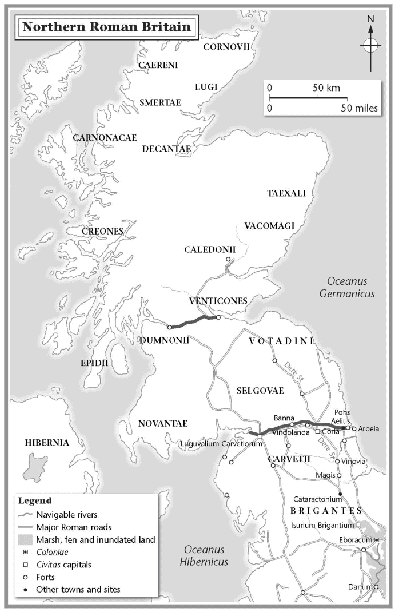
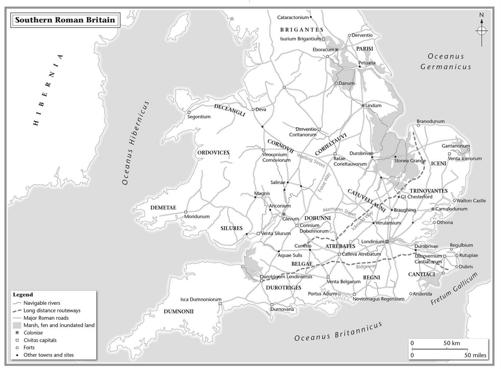
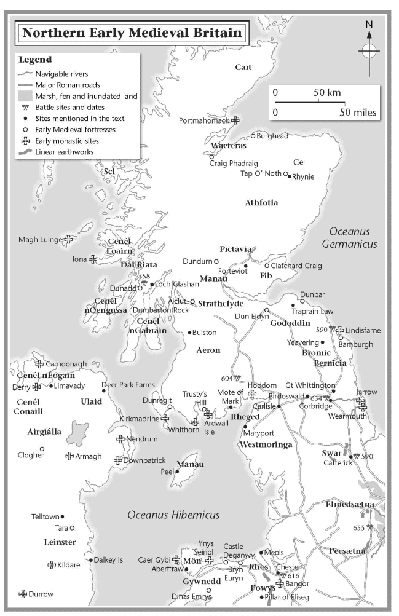
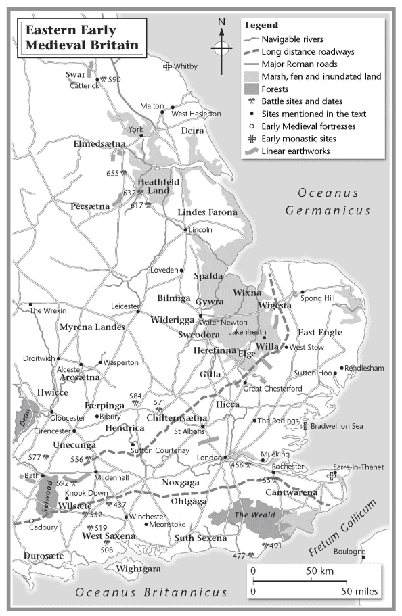
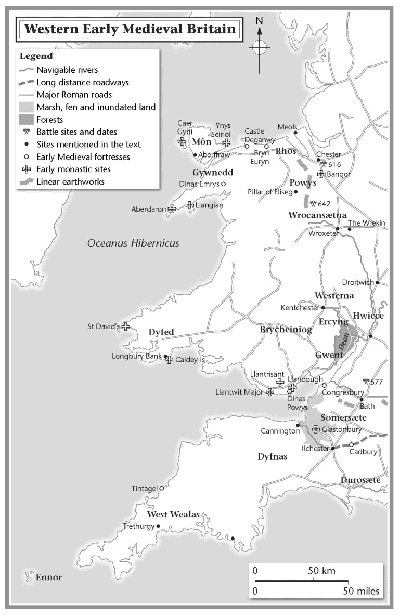
The pioneers of Early Medieval archaeology who rescued paper cup culture, as it was derisively called up until the 1960s, are the giants to whose shoulders any fool rushing into murky Dark Age waters clings. I was lucky enough to be taught by many of them and have been strongly influenced by others: Philip Rahtz, the indefatigable excavator and mentor of so many students; Rosemary Cramp and Tania Dickinson, who gave Anglo-Saxon studies a sharp cutting edge; Leslie Alcock and Charles Thomas, who found the landscapes and sites in which the narrative could be set; Thomas Charles-Edwards, the great scholar of the Celtic West; John Morris, who carved the idol for following iconoclasts to tear down; Brian Hope-Taylor and Philip Barker, who worked out how to do Dark Age archaeology, and Dominic Powlesland, who worked out how to do it on a bigger scale; Richard Morris and John Blair, who gave us a credible landscape for Christianitys rise; Nick Higham, who saw how to read its politics; and Margaret Gelling, the pioneer of Early English place-name studies. There are many others: I am constantly reminded of the staggering scholarship that lies behind comprehensible modern English translations of primary sources, without which linguistic klutzes like me would still be swimming in unlit pools.
I apologize in advance for any inadvertent failure to attribute ideas that I might pass off as original. All errors of fact are my own. I have other personal debts to acknowledge. The Royal Literary Fund helped me to keep my head above water when I had no other visible means of support. Colleagues in the north-east especially Colm OBrien (who kindly read an early version of the manuscript for this book), Diana Whaley, Hermann Moisl, Brian Roberts and the splendidly unherdable cats of the Bernician Studies Group (Bernices godparents, so to speak) have indulged my experimental Dark Age recipes, corrected my wilder trajectories and honed my thinking. Many friends and colleagues in Ireland have enriched my knowledge and comprehension: Brian Lacey, Sen Beattie, Neil McGrory, Martin Hopkins, Brian Lafferty, Rosemary Moulden, Dessie McCallion and all those others who have contributed to Lands of ogain projects over the last nine years. I want also to thank Dominic Powlesland for kindly providing me with the latest West Heslerton plan; Nick Cooper of the University of Leicester Archaeology Unit; my friend Lynne Ballew; and, not least, my publisher Richard Milbank and all those kind colleagues at Head of Zeus who produce such fine books.
Authors see only flaws in their work. The American poet Anne Bradstreet described the relationship perfectly, in about 1647:
I cast thee by as one unfit for light,
Thy Visage was so irksome in my sight;
Yet being mine own, at length affection would
Thy blemishes amend, if so I could:
I washd thy face, but more defects I saw,
And rubbing off a spot, still made a flaw.
I stretched thy joynts to make thee even feet,
Yet still thou runst more hobling then is meet.
Enough said.
M AX A DAMS ,
Dunadd,
June 2020
THE END OF HISTORY
Without doubt Britain was a land that the state could ill-afford to lose, so plentiful are its harvests, so numerous are the pasturelands in which it rejoices, so many are the metals of which seams run through it, so much wealth comes from its taxes.
E UMENIUS , Panegyric to Constantius 11.1
Late Romans
Fragments Salisbury Plain villagers civitates Gildas ultra-Roman Britons the fall Britannia s regions the edges of the empire Stonea Grange
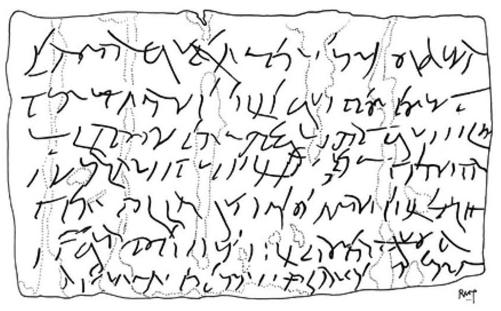
The sheet (of lead) which is given to Mercury, that he exact vengeance for the gloves which have been lost; that he take blood and health from the person who has stolen them; that he provide what we ask the god Mercury [] as quickly as possible for the person who has taken these gloves.
Modern translation from the Latin, of an inscribed third-century lead tablet from the temple of Mercury excavated at Uley West Hill, Gloucestershire, in 1978.
www.beastcoins.com/RomanImperial/X/ValentinianIII/ValentinianIII.htm .
A Roman Briton scrawls a curse on the thief who has run off with a pair of her gloves. Paying her coin to the temple priests or their lackeys, she mutters one last imprecation to the patron spirit of the shrine, pins the curse that bears her hopes for revenge onto a wooden post a sort of staff noticeboard for the gods and goes about her business trusting that some ill fate will overtake her enemy. We do not know her name, or that of the thief. We know nothing of the circumstances in which the gloves were stolen or lost; nor of the success or failure of the curse.
There is no time machine: we cannot go back and interrogate our forebears. The past lies in fragments like celluloid clippings heaped on a cutting-room floor. Join those clips together in some fashion and you find yourself watching a grainy, jump-cut, apparently plotless story following nonsensical characters, with snatches of forgotten songs from a half-familiar, half-strange soundtrack playing over and over in your ear. You pull the sellotaped frames apart, join them together again in a different sequence; spool them onto a reel; thread the lead into a projector and watch the credits roll again and again. One might just as well try to reconstruct the idea of a tree from its leaves, or an ocean wave from a dripping tap. So much is lost; truth is a chimera.
Next page
